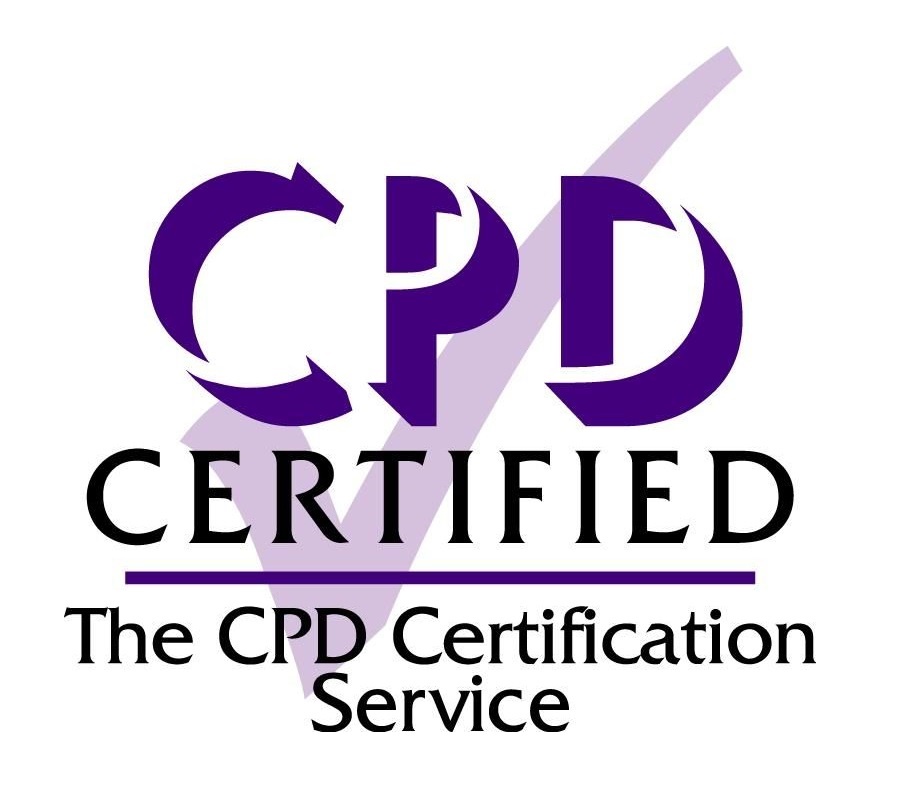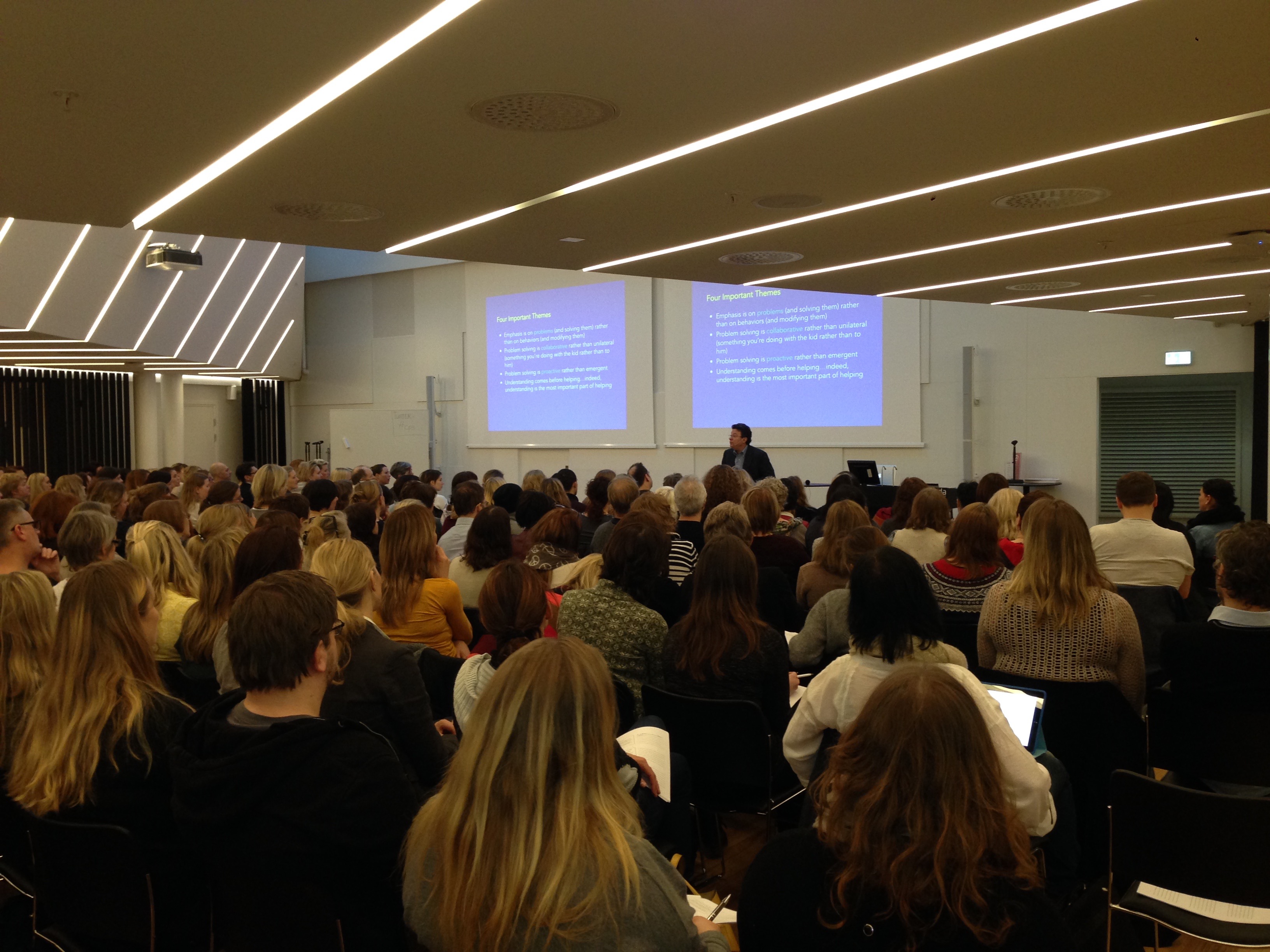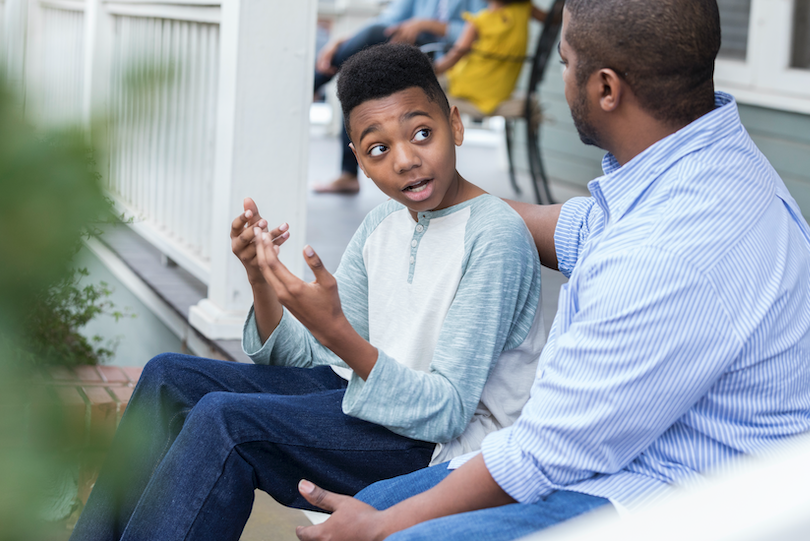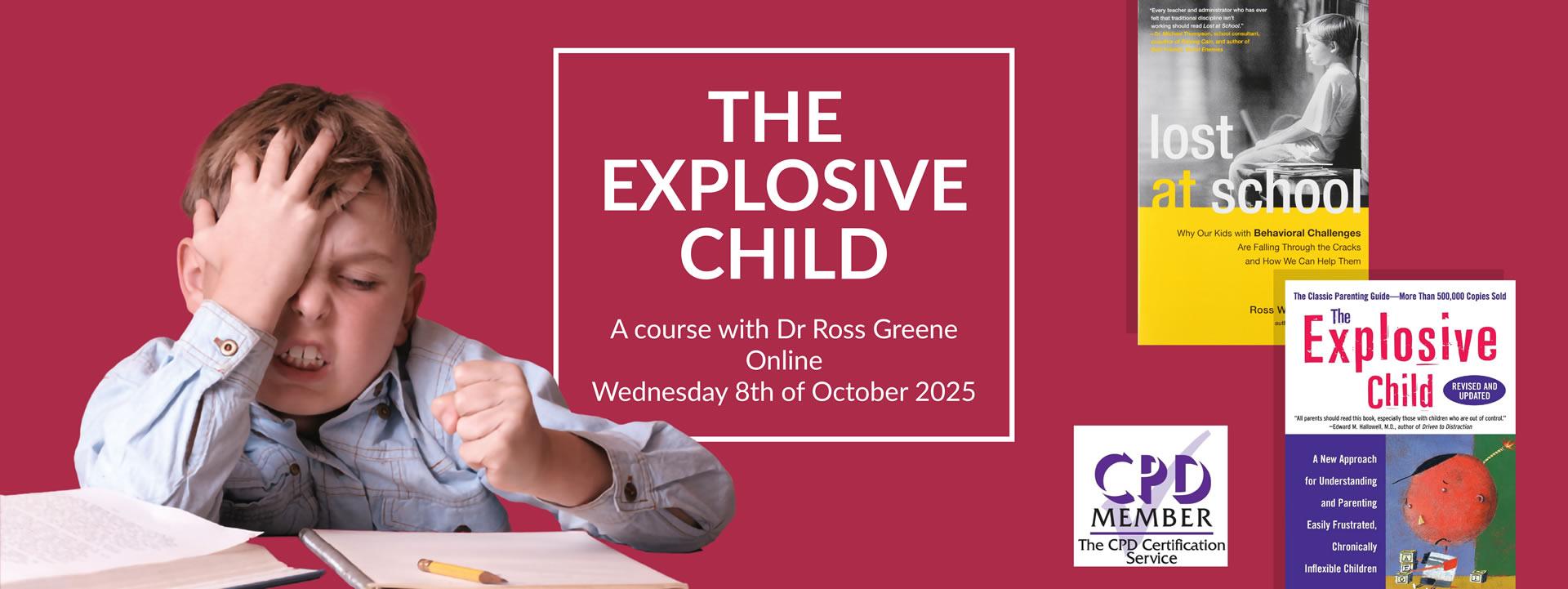
Reducing Aggression, Supporting Students: A Research-Based Solution
Collaborative and Proactive Solutions
An online course with Dr. Ross Greene
You can join this course online via Zoom.
It is also possible to join us on location in Oslo, Norway.
CPD points for this course
Our course with Dr. Ross Greene is now CPD certified and accredited for 6 CPD points.
Understanding and Helping Kids withSocial, Emotional, and Behavioral Challenges
Date: New dates will come.
Register your interest here.
While you wait for the new dates to be available, we strongly recommend taking a look at our course “When Big Emotions Take Over”.
This is a highly practical course for parents as well as professionals.
Disruptive behavior, interruptions, verbal and physical aggression are major and recurring challenges in schools.
These issues create stress for teachers, students, and classmates – taking time and focus away from what matters most: teaching and creating a safe and positive learning environment.
Many schools and families ask themselves:
How can we understand and resolve these situations in a way that reduces conflict, creates safety, strengthens relationships, and allows for a more focused learning environment?
Learn Practical, Research-Based Tools with Dr. Ross Greene!
An Evidence-Based Approach Transforming Care!
Our course “The Explosive Child” with Dr. Ross Greene provides practical, research-based tools to prevent, understand, and reduce challenging behavior in schools.
The course is practical and hands-on, equipping you with concrete strategies that you can apply immediately in your school environment.
This model has revolutionized how families, schools, inpatient psychiatric units, and residential and juvenile detention facilities address challenging behaviours and improve relationships worldwide. The CPS model has been linked to dramatic reductions in adult-child conflict, concerning behaviours, disciplinary referrals, detentions, suspensions, and the use of restraints and seclusions.
In this course you will learn the CPS model (Collaborative and Proactive Solutions), an approach that helps schools address students’ needs through careful analysis of when challenges occure, preventive measures and collaborative solutions.
The CPS model, developed by Dr. Ross Greene, is an evidence-based approach described in his groundbreaking books: The Explosive Child, Lost at School, Lost & Found, and Raising Human Beings.
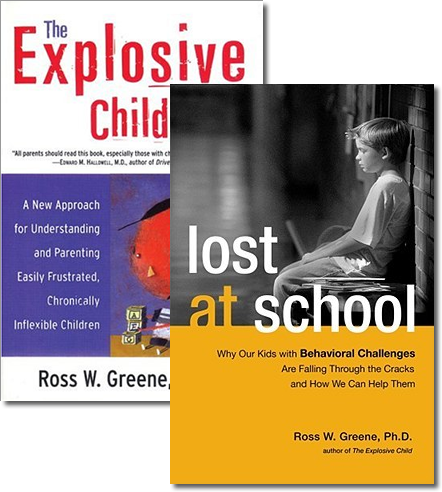
This model has revolutionized how families, schools, inpatient psychiatric units, and residential and juvenile detention facilities address challenging behaviours and improve relationships worldwide.
The CPS model has been linked to dramatic reductions in:
- Reduction in disruptive and aggressive behavior
- Increased safety and reduces stress for both students and staff
- Improved learning environment and more time for teaching
- Adult-child conflict
- Concerning behaviours
- Disciplinary referrals
- Detentions and suspensions
- Use of restraints and seclusions
Testimonials from previous participants:
“Very useful course! I was presented with practical solutions to challenging problems.”
“It was a great help for us as parents to read ‘Explosive Child’ and finally be met with understanding and empathy for the so-called ‘impossible’ children.”
“I am very satisfied with the course. Absolutely brilliant. Too few people use and understand this because they still believe that more punishment and rewards will lead them to the goal when it hasn’t worked before. Finally.”
“This is what I’ve been waiting for. I am eternally grateful to Ross Greene. We’ve been using it with our son for a year with very good results. Furthermore, it’s a tool I use almost daily in my work with parents of challenging children.”
“I had previously worked a bit with Ross Greene’s problem-solving and methods, with very good results where other methods didn’t help at all.”
“I recommend this seminar to anyone working with challenging/explosive children and look forward to letting those I meet benefit from what I have learned!”
“Ross Greene has given me optimism and belief that change is possible.”
Read more testimonials from previous participants at the bottom of the page.
A Powerful Shift in Thinking and Practice!
By prioritising collaboration and understanding over punishment and control, the CPS model de-emphasises diagnostic labels and provides a compassionate, effective framework for fostering stronger relationships and sustainable change.
- Solving problems rather than modifying behavior.
- Collaborative solutions instead of unilateral decision-making.
- Proactive intervention instead of reactive responses.
- Practical, research-based tools for assessment and intervention.
A course with Dr. Ross Greene
Dr. Ross Greene is the originator of a model of psychosocial treatment called Collaborative and Proactive Solutions (CPS), as first described in his book, The Explosive Child, and subsequently in his most recent release, Lost at School.
Based on research in the neurosciences over the past 30 years, the CPS model posits that challenging behavior is the result of lagging cognitive skills, especially in the domains of flexibility/adaptability, frustration tolerance, and problem-solving.
CPS helps adults and kids solve the problems precipitating challenging behavior and simultaneously teach kids the skills they’re lacking.
Target Group
The CPS model, which represents a dramatic departure from conventional wisdom and practice, has been found to be highly effective in an array of settings, including:
- Teachers and Teaching Assistants
- Principals and other School Leaders
- Parents
- Speech/Language Pathologists
- Occupational Therapists
- Psychologists
- Social Workers and Counselors
- Paediatricians
Participants in this course will leave with an understanding of the underpinnings of the CPS model and practical assessment and intervention tools that can be brought back to and used in these diverse settings.
This course is relevant for both professionals as well as for parents.
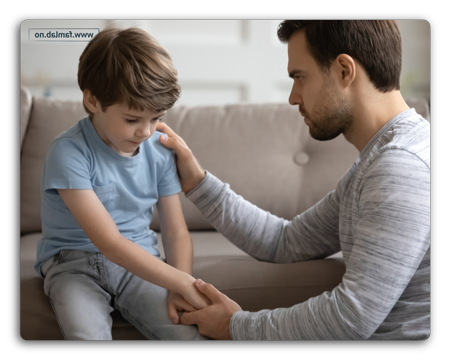
Practical Information
Course Schedule
- 08.00. Welcome and registration.
- 08.30. Lecture.
- 10.00 – 10.25. Break.
- 10.25. Lecture.
- 12.00 – 13.00. Lunch.
- 13.00. Lecture.
- 14.15 – 14.40. Break.
- 14.40. Lecture.
- 16.00. End.
Location
Online via Zoom.
It is also possible to join us on location in Oslo, Norway:
Sjølyst møtesenter, Drammensveien 165, OSLO
It is easy to arrive at the location via the airport train as well as local transport via bus or the tram. Its only a short 2-3 minute walk from the train station.
The nearest hotel, Scandic Sjølyst, is only a 2 minute walk. The location is close to a shopping area, recreational area by the sea, as well as the city center.
While you wait for the new dates to be available, we strongly recommend taking a look at our course “When Big Emotions Take Over”.
This is a highly practical course for parents as well as professionals.
Prices and discounts.
Price for online participation via Zoom
- Full price online: USD 248.
Price for participation in Oslo, Norway
- Full price on location in Oslo: USD 283.
If financial concerns are stopping you from signing up, we can offer you a discount. In this case, please get in touch with us via the contact form to receive a discount code.
Discounts
- Group discounts when participating online:
- Group of 5 or more: 235 $ per person.
- Group of 10 or more: 215 $ per person.
- Group discounts when participating in Oslo:
- Group of 5 or more: 295 $ per person.
- Group of 10 or more: 275 $ per person.
- For larger groups: 50 – 100 people or more we can offer significantly lower prices. Please contact us for information.
If you have questions you can email us via our contact page.
Information in Norwegian is available on this page.
Course Outline
The course covers the key themes of lagging skills and unsolved problems that are setting the stage for challenging behavior.
A model, the ALSUP, for assessment of lagging skills and unsolved problems is presented, and the limits of conventional motivational procedures are discussed.
The CPS model and plan B is presented both as an overview and the practical specifics is presented.
Video is shown to show examples of CPS and plan B in action.
Objectives.
At the conclusion of the seminar, participants will be able to:
- Describe how different explanations for and interpretations of challenging behavior in kids can lead to dramatically different approaches to intervention, and why conventional reward and punishment procedures may not be effective for many challenging kids.
- Identify and assess the various cognitive skills that are central to adaptively handling life’s social, emotional, and behavioral challenges.
- Identify and prioritize unsolved problems precipitating challenging behavior.
- The three basic mechanisms by which adults handle unsolved problems and unmet expectations in kids (Plans A, B, and C) and what is accomplished by each.
- The three steps or “ingredients” of Plan B.
- How to effectively implement Plan B to develop a helping relationship, solve problems, teach lagging cognitive skills, and reduce the frequency and intensity of challenging behavior.
Bio of Ross Greene.
Ross W. Greene, Ph.D. is the originator of the Collaborative & Proactive Solutions model described in his influential books The Explosive Child and Lost at School.
He is also founding director of the non-profit organization Lives in the Balance which aims to disseminate the CPS model through no-cost web-based programming and provide support to and advocacy on behalf of caregivers of behaviorally challenging kids.
Dr. Greene was on the faculty at Harvard Medical School for over 20 years and is now adjunct Associate Professor in the Department of Psychology at Virginia Tech.
His research has been funded by the Stanley Research Institute, the National Institutes of Mental Health, the U.S. Department of Education, and the Maine Juvenile Justice Advisory Group.
He consults extensively to families, general and special education schools, inpatient psychiatry units, and residential and juvenile detention facilities, and lectures widely throughout the world.
Recommendation from Jesper Juul:
“When I read Ross Greene’s first book, the ‘explosive child,’ my first thought was that this book should be translated into all Nordic languages. The publiser Pedagogisk Forum in Norway fortunately got excited about it, and thus the best book for parents I have read became available. Ross Greene has since built upon his immense knowledge, and his talent as a communicator makes this course just as exciting for professionals as it is for parents. I hope that many take advantage of this unique opportunity, among other things, to dispel some myths surrounding diagnoses and medication and to see their own role from a new perspective”. Jesper Juul.
See our video interview with Dr. Ross Greene here.
If you have questions you can email us via our contact page.
Examples of Using CPS
CPS can be useful in a variety of challenging and difficult situations.
Here are some examples:
- Repeated conflicts between adults and children
- Daily conflicts over rules, routines, and expectations.
- Challenging and aggressive behavior
- Physical aggression such as hitting, kicking, or pushing.
- Verbal aggression such as yelling, arguing, or threats.
- Withdrawal and passivity
- Children withdrawing, refusing to participate, or showing resistance.
- Difficulties with transitions
- Resistance to changes in activities, routines, or environments.
- Low frustration tolerance
- Quick emotional outbursts when faced with challenges or limits.
- Resistance to collaboration
- Children refusing to follow instructions or engage in activities.
- Difficulties with social relationships
- Conflicts with peers or siblings.
- Struggles with handling social pressure or group dynamics.
- Difficulties related to schoolwork
- Children refusing to do homework or struggling with assignments.
- Resistance to participating in class activities or following teacher guidance.
- Frequent disciplinary actions
- Repeated episodes leading to reprimands, consequences, or isolation.
- Stress and frustration in adults
- Parents, teachers, or other adults feeling exhausted or uncertain about how to handle situations.
- Children with complex needs and challenges related to diagnoses
- While CPS is not diagnosis-based, the model is highly effective for children with:
- ADHD: Managing impulsivity, focus challenges, and frustration.
- Autism Spectrum Disorders: Supporting flexibility, social skills, and handling change.
- Anxiety Disorders: Reducing stress and building a sense of safety through collaboration.
- Attachment Challenges: Strengthening relationships built on trust and understanding.
- Difficulties identifying underlying causes
- Struggles to understand what triggers a child’s behavior or how to resolve it.
- Lack of skills in the child
- Children who lack skills in flexibility, frustration management, or problem-solving.
- School refusal and avoidance
- Children refusing to attend school or showing strong resistance to participating in education.
- Underlying causes such as anxiety, stress, conflicts with peers or teachers, or feelings of inadequacy.
Summary:
CPS is particularly effective for addressing these challenges by involving both the child and adults in collaborative problem-solving. The model helps identify underlying causes and develop solutions that strengthen relationships, reduce conflicts, and create lasting change.
Let me know if you need any further adjustments!
“I want to thank you for a great course with Ross Greene. We had many participants from our municipality, and so far I have only heard positive feedback from the course. I also think the seminar via Zoom worked well, and it allowed us to participate with many more people than if it had been held physically far away from where we are located. Again, thank you for a highly professional course.”
“This course is suitable for anyone working with or interacting with children. Ross presented the topic ‘explosive children’ in an easily understandable and engaging way. If all parents and professionals in kindergartens and schools knew about ‘problem-solving through collaboration,’ many children would have a much better and more dignified everyday life.”
“Ross Greene has given me optimism and belief that change is possible by focusing on unresolved problems instead of behavior, finding solutions in collaboration with the child instead of using praise and punishment.”
“It was a captivating, engaging day that went by too quickly. I felt a strong sense of confidence being introduced to Ross Greene, who chooses to look ‘beyond’ and dedicates his time to figuring out how to help and lead when you’re stuck. Very exciting!”
“Truly an eye-opener! Greene points out opportunities to integrate respect and care for children and youth with necessary boundary-setting in a thoughtful and concrete way. The method seems practically feasible. I expect to improve my own practice as a result of the course.”

